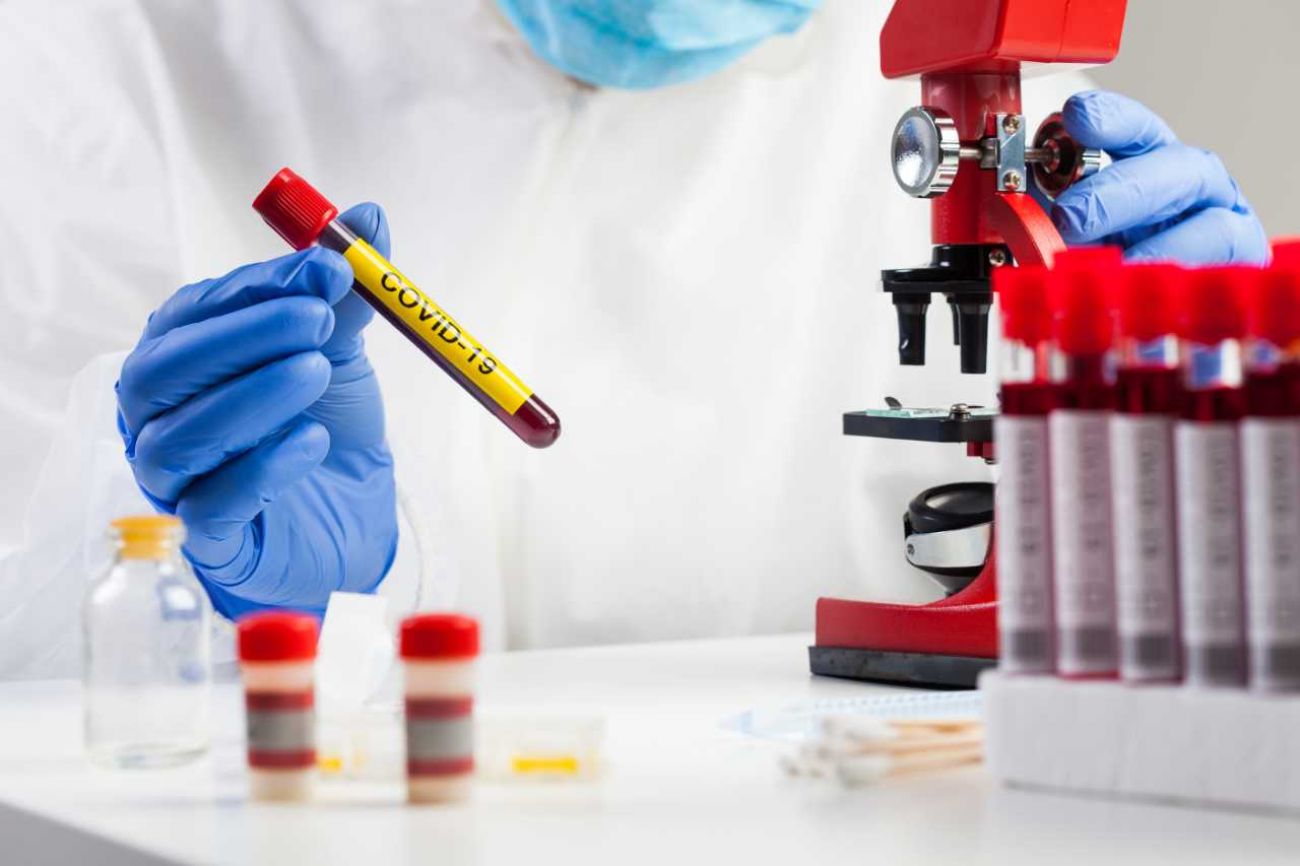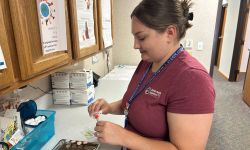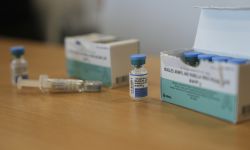Despite FDA delay, Michigan to keep using convalescent plasma for COVID-19

Michigan hospitals will keep using convalescent plasma to treat certain COVID-19 patients — they’ll just have to keep jumping through certain hoops to do it. That's after the U.S. Food and Drug Administration reportedly delayed authorizing the experimental treatment for “emergency use.”
That authorization — if it is eventually granted — would essentially allow doctors to use the treatment in COVID-19 patients more widely, without having to meet certain requirements, like enrolling them in one of several ongoing clinical trials.
- The latest: Michigan coronavirus unemployment, map, curve, updated COVID-19 news
- Dashboard: Michigan coronavirus testing numbers, trends, COVID-19 data
Many doctors and researchers are hopeful about the treatment, which has been used for more than 100 years to treat a host of illnesses, in part because it’s seen as relatively low risk.
The treatment involves a patient who’s recovered from COVID-19 donating their blood plasma (the liquid part of blood) to a patient still battling the virus, in hopes the antibodies the recovered patient developed will help the fight off infection.
While there's still no conclusive data this works for COVID-19, some are optimistic about the early, anecdotal results.
“We treated one of our own physicians, a known hospitalist who has been with us for many years, with plasma,” says Dr. Indira Brar, a physician with Henry Ford Health System’s Divisions of Infectious Disease and Internal Medicine. “And he has since recovered and has been discharged from the hospital, and has done well.
Stories from the front
Bridge Magazine, Detroit Free Press and Michigan Radio are teaming up to report on Michigan hospitals during the coronavirus pandemic. We will be sharing accounts of the challenges doctors, nurses and other hospital personnel face as they work to treat patients and save lives. If you work in a Michigan hospital, we would love to hear from you. You can contact reporters Robin Erb rerb@bridgemi.com at Bridge, Kristen Jordan Shamus kshamus@freepress.com at the Free Press and Kate Wells katwells@umich.edu at Michigan Radio.
“Since that day, we have treated over 150 with convalescent plasma. Almost all of these patients have been treated on a clinical trial… Anecdotally, our patients have done well,” Brar says.
The majority of these Henry Ford patients are being treated as part of a Mayo Clinic study that’s made convalescent plasma available to hospitals around the country, including at the University of Michigan. Called an “expanded use” study, it doesn’t assign placebos to some patients, as is done in randomized trials. But it allows patients with serious conditions who don’t qualify for clinical trials to receive a treatment that hasn’t been approved by the FDA.
“From the start, we were part of the Mayo Clinic registry that has an ‘expanded access’ approval from FDA to help hospitals try this experimental option — they are collecting data from all the sites, but is not a formal clinical trial with comparison groups,” Kara Gavin, a U-M spokeswoman, said in an email.“We continue to offer plasma to inpatients though we currently have a very low number of them.”
Gavin says doctors at the university’s health system also helped design a clinical trial using plasma in the ER to treat COVID-19 patients who are at higher risk of becoming severely ill. So far, the system hasn’t enrolled its own patients, she says, but are coordinating the study nationally and working with several hospitals in Detroit.
Henry Ford Health System is also conducting a study that’s enrolled about 30 patients so far to test the “tolerability and efficacy of transfusion of 200mL of convalescent plasma” in hospitalized COVID-19 patients. This is a true clinical trial, in which groups of patients receive multiple treatments (and possibly placebos) to evaluate the effectiveness of a treatment in comparison to a control group. Brar says they’re selecting patients who are severely ill or at high risk of becoming so — usually those who are on ventilators, are older, or have comorbidities.
Individual patients can also be treated with convalescent plasma in “compassionate use” cases, when patients have a life-threatening illness and don’t qualify for other trials. (Henry Ford Health System says one of its patients was treated this way.)
Despite Brar’s hopefulness about the treatment, she says she supports the FDA’s decision to hold off on expanding access to convalescent plasma more broadly.
“The FDA just put a hold on it because they thought that of all the trials we have so far, we don't have enough robust data to say that (it’s effective or not),” she says. “Most of the clinical trials that have been reported so far are not randomized clinical trials. They don't really have a placebo arm.”
Patients in convalescent plasma studies often receive it along with other treatments, which can make it harder for researchers to say for sure that results are due to one particular treatment.
“They want to be sure that the effect that we are seeing in the decrease in mortality is really from the use of convalescent plasma,” Brar says. “And not because of other variables. And that is why they're waiting for some of the randomized clinical trial data to be available.”
See what new members are saying about why they donated to Bridge Michigan:
- “In order for this information to be accurate and unbiased it must be underwritten by its readers, not by special interests.” - Larry S.
- “Not many other media sources report on the topics Bridge does.” - Susan B.
- “Your journalism is outstanding and rare these days.” - Mark S.
If you want to ensure the future of nonpartisan, nonprofit Michigan journalism, please become a member today. You, too, will be asked why you donated and maybe we'll feature your quote next time!








